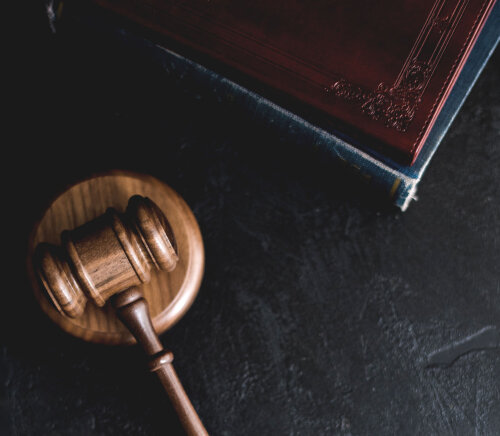Best Collaborative Law Lawyers in Kloof
Share your needs with us, get contacted by law firms.
Free. Takes 2 min.
Free Guide to Hiring a Family Lawyer
List of the best lawyers in Kloof, South Africa
About Collaborative Law in Kloof, South Africa
Collaborative Law in Kloof, South Africa, is a legal approach used primarily in family law to resolve disputes without going to court. It is a voluntary procedure where both parties, along with their lawyers, commit to working together to reach a mutually agreeable solution. The emphasis is on open communication, problem-solving, and cooperation, making it an ideal method for amicably resolving issues such as divorce, child custody, and financial settlements.
Why You May Need a Lawyer
Individuals in Kloof might seek a Collaborative Law lawyer for various reasons. Some common situations include navigating a divorce, deciding on child custody arrangements, or settling financial disputes. Collaborative Law can also be useful in resolving business disputes or any situation where the parties wish to avoid the adversarial court process. Having a lawyer skilled in Collaborative Law ensures that your interests are effectively represented while maintaining the focus on cooperation and mutual respect.
Local Laws Overview
Kloof, part of the larger KwaZulu-Natal province, adheres to South African national laws governing family and civil disputes. Key aspects of Collaborative Law in the region include a commitment to confidentiality, mandatory legal representation for both parties, and a formal agreement not to litigate during the collaborative process. It is essential for parties to voluntarily agree to this method, emphasizing good faith negotiations and open communication to achieve a satisfactory resolution.
Frequently Asked Questions
What is Collaborative Law?
Collaborative Law is a legal process enabling parties to resolve disputes in a cooperative manner without going to court.
How does Collaborative Law differ from traditional litigation?
Unlike traditional litigation, Collaborative Law focuses on negotiation and problem-solving, requiring both parties to work towards a mutually satisfying agreement with the help of their lawyers.
What are the benefits of using Collaborative Law?
The process is typically less stressful, more cost-effective, and faster than traditional litigation. It also allows for more creative solutions tailored to the needs of both parties.
Is Collaborative Law legally binding?
Yes, once an agreement is reached, it can be formalized into a legally binding document and submitted to the court for approval.
Can any case be handled with Collaborative Law?
While it is particularly suited for family law disputes, Collaborative Law can be applied to any civil matter where parties are willing to engage collaboratively.
Do I still need a lawyer if we are amicable?
Yes, each party must have legal representation to ensure the process is fair and that their legal rights are protected.
What happens if the collaborative process fails?
If parties cannot reach an agreement, they may need to resort to traditional litigation, and both collaborative lawyers must withdraw from the case.
How long does the Collaborative Law process take?
The timeline varies depending on the complexity of the issues but is generally quicker than litigation, often resolved within several months.
Is there a formal agreement required to start the process?
Yes, both parties and their lawyers must sign a participation agreement, outlining the rules and expectations of the collaborative process.
Can Collaborative Law be used for business disputes?
Yes, the principles of Collaborative Law can be applied to business and commercial disputes where parties wish to resolve matters amicably.
Additional Resources
For further assistance, consider contacting the South African Association of Collaborative Professionals or local legal aid services. These organizations can provide additional guidance and information related to Collaborative Law. The Department of Justice and Constitutional Development in South Africa also offers resources for those seeking legal assistance.
Next Steps
If you believe Collaborative Law is the right approach for your situation, the first step is to find a qualified lawyer experienced in Collaborative Law in Kloof. It may be helpful to consult with different lawyers to find one whose approach aligns with your needs and goals. Prepare questions and have relevant information ready for your initial consultation to discuss how Collaborative Law can work for your case.
Lawzana helps you find the best lawyers and law firms in Kloof through a curated and pre-screened list of qualified legal professionals. Our platform offers rankings and detailed profiles of attorneys and law firms, allowing you to compare based on practice areas, including Collaborative Law, experience, and client feedback.
Each profile includes a description of the firm's areas of practice, client reviews, team members and partners, year of establishment, spoken languages, office locations, contact information, social media presence, and any published articles or resources. Most firms on our platform speak English and are experienced in both local and international legal matters.
Get a quote from top-rated law firms in Kloof, South Africa — quickly, securely, and without unnecessary hassle.
Disclaimer:
The information provided on this page is for general informational purposes only and does not constitute legal advice. While we strive to ensure the accuracy and relevance of the content, legal information may change over time, and interpretations of the law can vary. You should always consult with a qualified legal professional for advice specific to your situation.
We disclaim all liability for actions taken or not taken based on the content of this page. If you believe any information is incorrect or outdated, please contact us, and we will review and update it where appropriate.









